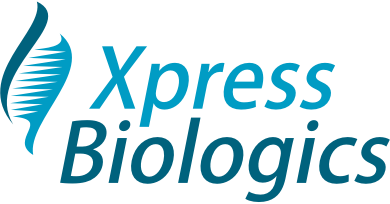RECOMBINANT PROTEIN MANUFACTURING SERVICES
We are experts in microbial expression systems (bacteria & yeast) and we focus on developing robust and reliable production processes. We offer over 30 years of combined experience in the manufacturing of recombinant proteins following all expression solutions, i.e. periplasmic expression, soluble cytoplasmic expression, secretion and inclusion bodies refolding. We have developed a recombinant protein production platform and have produced more than 30 different proteins for therapeutic and imaging applications.
Our processes are designed using scalable high yielding fed-batch fermentation and purification methods which can rapidly provide from 100 mg to 50 g of R&D and High Quality grade material with dedicated QC tests for R&D, preclinical validation (POC, TOX, PK/PD) or other.
Our protein production service is based on four technological platforms
Molecualr Biology
The molecular biology platform ensures the following activities:
- Design of expression systems including selection between different strains, expression vectors, selection markers, promoters, secretion signals, coding sequences, modes of codon optimization leading up to over 100 possible combinations
-
construction of the expression vectors
-
transformation, clones screening and selection of the best producing clones
-
production of Research Cell Banks
Two microbial expression systems are proposed for the expression of recombinant proteins: Escherichia coli and Pichia pastoris (single ou multicopy clone strategy).
Pichia pastoris
This yeast has the ability to produce and secrete large quantities of protein in the cultivation medium, which facilitates the recovery of the biological material and significantly decreases the contamination with host cell proteins and facilitates the purification.
Escherichia coli
For protein expression, two types of construction (without or with signal peptide) using selected strains of E. coli (BL21, BL21/DE3) are proposed for three different expression strategies:
- soluble cytoplasmic expression
- cytoplasmic expression as inclusion bodies
- soluble periplasmic expression
Upstream process
The fermentation & upstream process platform ensures the following activities:
- development and optimization of fermentation conditions using a DoE approach and a set of four identical 5L stainless steel fermenters
- production of biologics in 50L bioreactor/fermenter using either our standard high cell density fed-batch protocol (for R&D use) or the developed and optimized methods (for applications requiring GLP grade)
- harvest of the supernatant (P. pastoris) or the cell paste (E. coli)
- protein extraction using soft lysis protocols ensuring high recovery yield without any damage on the biologics structure
- clarification and sterile filtration of supernatants and cell extracts
- transfer and scaling-up studies based on chemical engineering
Downstream process
The downstream process platform (chromatography & ultrafiltration) is designed for:
- purification process development, optimization and robustness testing
- scaling up study
- purification tool for up to 10 g of purified material
Chromatography
- A high throughput screening strategy is proposed in order to determine the optimal resins and chromatographic conditions for binding and elution. The best identified conditions are fine-tuned using small-scale columns. A flow-chart including two to three different chromatographic steps (orthogonal approach) is then designed and tested at larger scale.
- The efficiency of the chromatography steps is monitored using different analytical tools: µBCA (for recovery yield estimation), SDS-PAGE, SE- and RP-HPLC (for purity analysis).
Ultrafiltration
- Ultrafiltration is used for buffer exchange, removal of impurities and formulation in the final buffer.
- Development implies different parameters (membrane type and cut-offs, protein loads, number of diafiltration volumes, pressure conditions…).
- Selection of the best conditions is based on different In Process Controls: UV, SDS-PAGE and SE-HPLC.
Quality control
The quality control platform developed by Xpress Biologics includes a large range of equipment / techniques dedicated to the characterization of the purified material:
- ready-to-use methods: SDS-PAGE, AGE, IEF, µBCA, pH, conductivity, spectrophotometry, endotoxin, Bioburden
- methods requiring specific development: WB, RP-, SE- & IEx-HPLC, HCP, rDNA, restriction mapping, ELISA, activity tests
The purified material is characterized using the following assays:
| Tests | Methods |
|---|---|
| Physical state | pH, conductivity and appearance |
| Identity | SDS-PAGE |
| Western blotting | |
| Iso-electrofocusing | |
| Mass spectroscopy (ESI-Q-TOF, peptide mapping) | |
| RP- & IEx-HPLC | |
| Content | µBCA |
| Spectrophotometry - A280 | |
| Purity | SDS-PAGE (reducing and non-reducing conditions) |
| RP & IEx-HPLC | |
| SE-HPLC | |
| Impurity | Residual host cell proteins by ELISA |
| Residual host cell DNA by threshold | |
| Safety | Endotoxin content by LAL |
| Bioburden | |
| Potency | Specific test (ELISA, specific activity…) |

